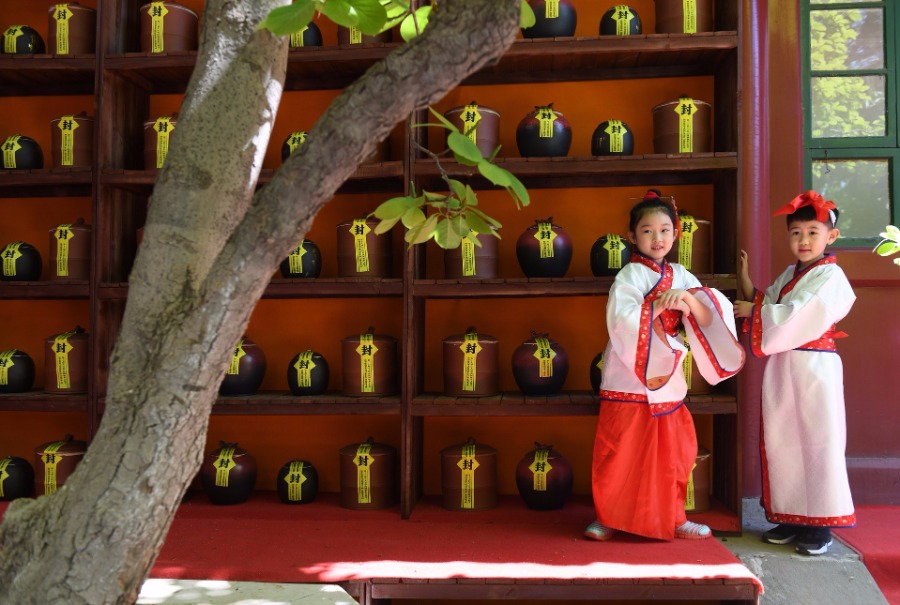Post-90s generation promotes traditional Chinese tea culture


For Wang Chuangchuang, an 18-year-old who studies tea processing in Chongqing, making tea requires hard work and patience.
After six months of practice, Wang managed to grasp how to roast fresh tea leaves without destroying their shape. Since then, he has fallen in love with his career as a tea master.
"I wish to work for a tea company first and then start a business in my hometown," Wang said.
Li Hongyu, from Qufu in Shandong Province, chose the tea-culture major at Jiangxi Wuyuan Tea School out of curiosity.
"I had an intuition that it might change my life, so I decided to follow my heart despite my family's opposition at first," Li said.
She likes the atmosphere of the school, especially on weekends, when groups of students gather on the grass on campus, brewing and drinking tea, chatting and enjoying their leisure time.
Li plans to work in Jiangxi for a few years before going back to her hometown to open her own tea house or teach tea ceremonies. "Qufu is deeply influenced by Confucianism. Where there is traditional Chinese culture, there is tea culture."
"People can enjoy a cup of tea at a tea house with friends, or at home with family, or in office during work. I will join other young people to promote the traditional Chinese tea art and let more and more people love tea," Li said.




























